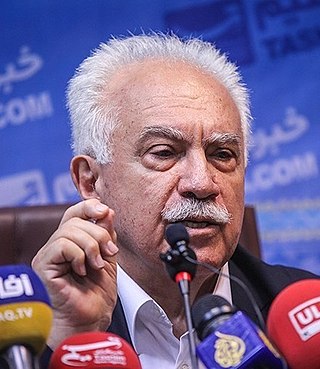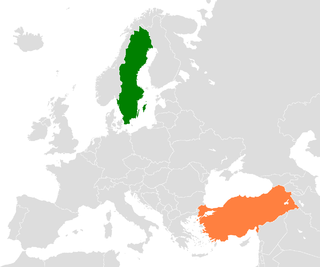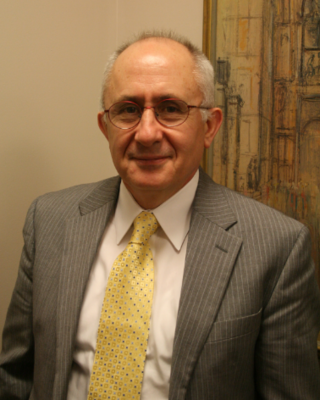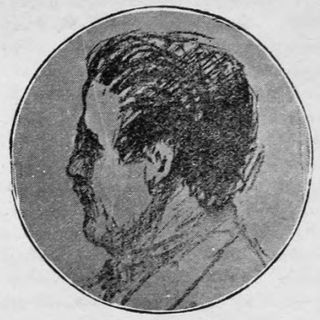Related Research Articles

Since its independence, Armenia has maintained a policy of complementarism by trying to have positive and friendly relations with Iran, Russia, and the West, including the United States and the European Union. It has full membership status in a number of international organizations and observer status, etc. in some others. However, the dispute over the Armenian genocide of 1915 and the ongoing Nagorno-Karabakh conflict have created tense relations with two of its immediate neighbors, Azerbaijan and Turkey.
Ragıp Zarakolu is a Turkish human rights activist and publisher who has long faced legal harassment for publishing books on controversial subjects in Turkey, especially on minority and human rights in Turkey.

Diplomatic relations between Armenia and Turkey are officially non-existent and have historically been hostile. Whilst Turkey recognised Armenia shortly after the latter proclaimed independence in September 1991, the two countries have failed to establish diplomatic relations. In 1993, Turkey reacted to the war in Nagorno-Karabakh by closing its border with Armenia out of support for Azerbaijan.

Armenian genocide denial is the claim that the Ottoman Empire and its ruling party, the Committee of Union and Progress (CUP), did not commit genocide against its Armenian citizens during World War I—a crime documented in a large body of evidence and affirmed by the vast majority of scholars. The perpetrators denied the genocide as they carried it out, claiming Armenians were resettled for military reasons, not exterminated. In the genocide's aftermath, incriminating documents were systematically destroyed, and denial has been the policy of every government of the Republic of Turkey, as of 2023.

Doğu Perinçek is a Turkish politician, doctor of law and former communist revolutionary who has been chairman of the left-wing nationalist Patriotic Party since 2015. He was also a member of the Talat Pasha Committee, an organization that denies the Armenian genocide. Politically, he favors close relations with China and is strongly anti-American.

Armenian genocide recognition is the formal acceptance that the systematic massacres and forced deportation of Armenians committed by the Ottoman Empire from 1915 to 1923, during and after the First World War, constituted genocide. Most historians outside of Turkey recognize that the Ottoman persecution of Armenians was a genocide. However, despite the recognition of the genocidal character of the massacre of Armenians in scholarship as well as in civil society, some governments have been reticent to officially acknowledge the killings as genocide because of political concerns about their relations with the Republic of Turkey. As of 2023, governments and parliaments of 34 countries—including Argentina, Brazil, Canada, France, Germany, Italy, Mexico, Russia and the United States—have formally recognized the Armenian genocide.

The United States' recognition of the Armenian genocide is the American formal recognition that the deportation and massacre of Armenians by the Ottoman Empire during the First World War constituted genocide. The United States recognizes the Armenian genocide through two congressional resolutions passed by both houses of the United States Congress, and by presidential announcement. The House of Representatives passed a resolution with broad support on October 29, 2019, and the Senate did the same by unanimous consent on December 12, 2019, making the recognition of the Armenian genocide part of the policy of the United States. Before 2019, there were numerous proposed resolutions in Congress to recognize the Armenian genocide, all failing to receive enough support.

Swedish–Turkish relations are foreign relations between Sweden and Turkey. Both countries are full members of the Council of Europe, the Organisation for Economic Co-operation and Development (OECD), the Organization for Security and Co-operation in Europe (OSCE) and the Union for the Mediterranean.
Ayşe Nur Zarakolu was a Turkish author, publisher and human rights advocate. She was co-founder, with her husband Ragıp Zarakolu, of notable Turkish publishing house Belge and, in the 1980s, became the director of book-distribution company Cemmay, the first woman in the nation to hold such a position. Zarakolu's publications brought her into frequent conflict with Turkish press laws; in 1997, The New York Times identified Zarakolu as "one of the most relentless challengers to Turkey's press laws". Issues Zarakolu helped publicize in Turkey include the Armenian genocide and human rights of Kurdish people in Turkey. Imprisoned multiple times for her publications, she was designated a prisoner of conscience by Amnesty International and her legacy continued to face legal challenge in Turkey after her death. She has received multiple awards and honors for her work and the Human Rights Association of Turkey bestows the Ayşe Zarakolu Freedom of Thought prize in her honor.
Jean-Claude Kebabdjian is an Armenian-French publisher, journalist and author. Since the 1970s he raised awareness of Armenian memory and Armenian culture within the French society and within Europe.

Altuğ Taner Akçam is a Turkish-German historian and sociologist. During the 1990s, he was the first Turkish scholar to acknowledge the Armenian genocide, and has written several books on the genocide, such as A Shameful Act (1999), From Empire to Republic: Turkish Nationalism and the Armenian Genocide (2004), The Young Turks' Crime Against Humanity (2012), and Killing Orders (2018). He is recognized as a "leading international authority" on the subject. Akçam's frequent participation in public debates on the legacy of the genocide have been compared to Theodor Adorno's role in postwar Germany.

Armen Dorian was a renowned Armenian poet, teacher, and editor who lived in the Ottoman Empire. He studied at the Sorbonne University in Paris, France. He wrote poetry in French and Armenian. In 1915, Dorian was arrested and killed during the Armenian genocide at the age of 23.

Harutiun Shahrigian was an Armenian politician, soldier, lawyer, and author.

Hafız Mehmet was a Turkish politician and the Minister of Justice for the Republic of Turkey. While serving as a deputy in Trabzon, he was a witness to the Armenian genocide. His testimony of the event is considered by genocide scholar Vahakn Dadrian as one of the "rarest corroborations of the fact of the complicity of governmental officials in the organization of the mass murder of Armenians". He was sentenced to death after the Izmir trials of 1926, charged with attempting to assassinate Mustafa Kemal Atatürk.
The Blue Book, Political Truth or Historical Fact is a 2009 documentary film by Gagik Karagheuzian about the Armenian genocide denial.

Memorial and Museum of Martyred Turks Massacred by Armenians or Iğdır Genocide Memorial and Museum is a memorial-museum complex which promotes Armenian genocide denial. The construction for the memorial started on 1 August 1997 and it was dedicated on 5 October 1999 in Iğdır, Turkey. Its height is 43.5 metres (143 ft), making it the tallest monument in Turkey.
The Coronavirus Scientific Advisory Board is a group of medical scientists set up by the Ministry of Health to develop measures in the fight against the COVID-19 pandemic in Turkey that are imposed by the government.
The terminology of the Armenian genocide is different in English, Turkish, and Armenian languages and has led to political controversies around the issue of Armenian genocide denial and Armenian genocide recognition. Although the majority of historians writing in English use the word "genocide", other terms exist.
The International Conference on the Holocaust and Genocide was the first major conference in the field of genocide studies, held in Tel Aviv on 20–24 June 1982. It was organized by Israel Charny, Elie Wiesel, Shamai Davidson, and their Institute on the Holocaust and Genocide, founded in 1979. The conference's objective was to further the understanding and prevention of all genocides; it marked the shift from viewing genocide as an irrational phenomenon to one that could be studied and understood.

Open Wounds: Armenians, Turks and a Century of Genocide is a 2015 book by Vicken Cheterian and published by Hurst that aims to be a "political history of the genocide since [1915] and the consequences of denialism". The book was praised for its comprehensiveness and accessibility to a wide audience.
References
- 1 2 3 4 Dixon, Jennifer M. (2018). Dark Pasts: Changing the State's Story in Turkey and Japan . Cornell University Press. pp. 83–84, 89. ISBN 978-1-5017-3025-2.
- 1 2 3 Hofmann, Tessa (2016). "From Silence to Re-remembrance: The Response of German Media to Massacres and Genocide against the Ottoman Armenians". Mass Media and the Genocide of the Armenians: One Hundred Years of Uncertain Representation. Palgrave Macmillan UK. pp. 99–100. ISBN 978-1-137-56402-3.
- 1 2 Mamigonian, Marc (4 June 2012). "Mamigonian: Tlön, Turkey, and the Armenian Genocide". The Armenian Weekly. Retrieved 27 March 2021.
- 1 2 "Taner Akçam: Türkiye'nin, soykırım konusunda her bakımdan izole olduğunu söyleyebiliriz". CivilNet (in Turkish). 9 July 2020. Archived from the original on 16 January 2021. Retrieved 2 January 2021.
- 1 2 Zarakolu, Ragıp (24 February 2009). "Ecevit-Bahçeli Hükümetinin armağanı olan ASİMKK (Asılsız Soykırımı İddialarıyla Mücadele Koordinasyon Kurulu) ne oldu". HyeTert (in Turkish). Retrieved 27 March 2021.
- ↑ "Turkey Will Create 'New Autonomous Body' to Deny Armenian Genocide". Asbarez.com. 24 June 2020. Retrieved 27 March 2021.